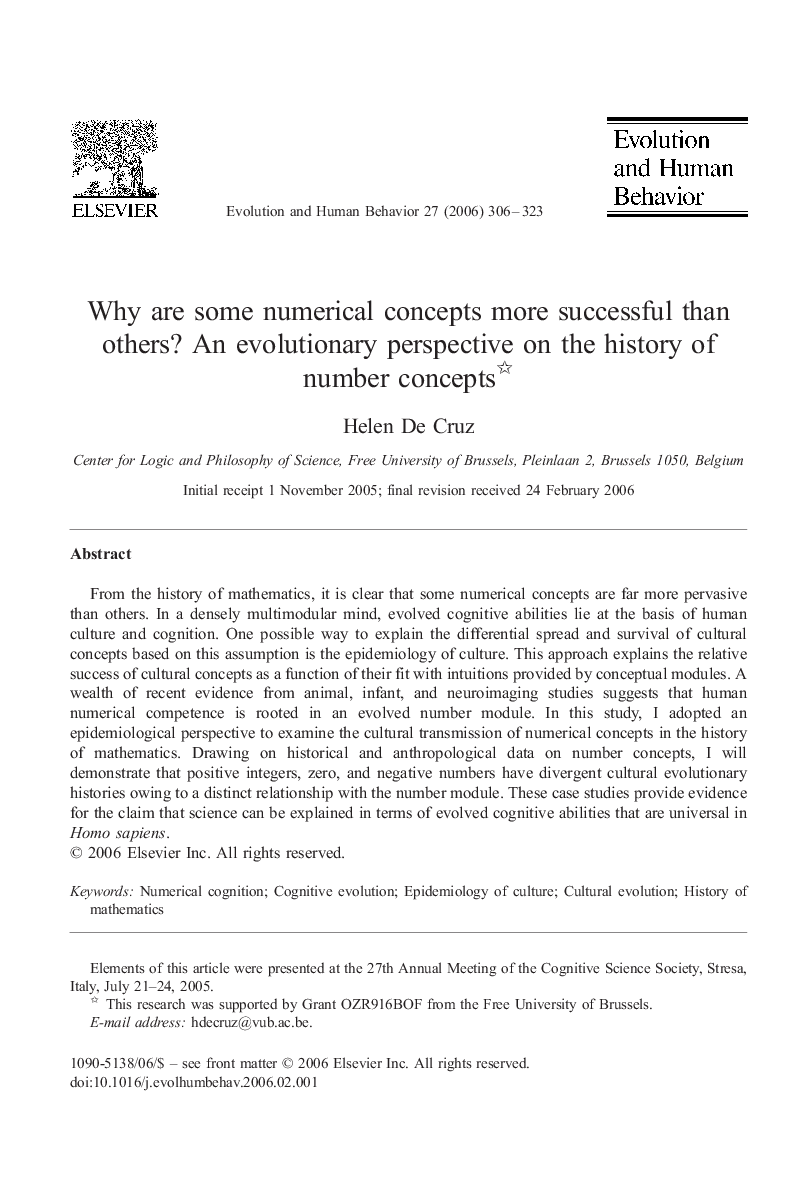| Article ID | Journal | Published Year | Pages | File Type |
|---|---|---|---|---|
| 943522 | Evolution and Human Behavior | 2006 | 18 Pages |
From the history of mathematics, it is clear that some numerical concepts are far more pervasive than others. In a densely multimodular mind, evolved cognitive abilities lie at the basis of human culture and cognition. One possible way to explain the differential spread and survival of cultural concepts based on this assumption is the epidemiology of culture. This approach explains the relative success of cultural concepts as a function of their fit with intuitions provided by conceptual modules. A wealth of recent evidence from animal, infant, and neuroimaging studies suggests that human numerical competence is rooted in an evolved number module. In this study, I adopted an epidemiological perspective to examine the cultural transmission of numerical concepts in the history of mathematics. Drawing on historical and anthropological data on number concepts, I will demonstrate that positive integers, zero, and negative numbers have divergent cultural evolutionary histories owing to a distinct relationship with the number module. These case studies provide evidence for the claim that science can be explained in terms of evolved cognitive abilities that are universal in Homo sapiens.
